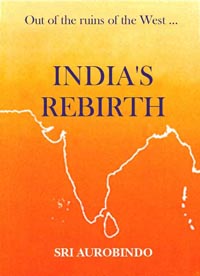|
Page1
 II
II
1910-1922
(On April 4, 1910, Sri Aurobindo, still wanted by the British, reached Pondicherry clandestinely. A third charge of sedition against him, for an article in the Karmayogin, failed in his absence. For several years he was going to live in this French colony as a fugitive, with spies and rumours hovering about him and his small group of companions.
For some time Sri Aurobindo thought of returning to British India, but he soon saw that "enough had been done to change the whole face of Indian politics and the whole spirit of the Indian people to make independence its aim," as he wrote later. "His own personal intervention in politics would therefore no longer be indispensable. Apart from all this, the magnitude of the spiritual work set before him became more and more clear to him, and he saw that the concentration of all his energies on it was necessary." But Sri Aurobindo's retirement from political activity "did not mean, as most people supposed, that he had retired into some height of spiritual experience devoid of any further interest in the world or in the fate of India."18
The following excerpts are from letters, articles and essays; many of the latter appeared in the Arya, an English monthly Sri Aurobindo published from 1914 to 1921, in which he wrote most of his important works.)
1910-1912
We have, most of us, our chosen explanation of this dolorous phenomenon [of the decline of Indian civilisation]. The patriot attributes our decline to the ravages of foreign invasion and the benumbing influences of foreign rule; the disciple of European materialism finds out the enemy, the evil, the fount and origin of all our ills, in our religion and its time-honoured social self-expression. Such explanations, like most human thoughts, have their bright side of truth as well as their obscure side of error; but they are not, in any case, the result of impartial thinking. Man may be, as he has been defined, a reasoning animal, but it is necessary to add that he is, for the most part, a very badly reasoning animal. He does not ordinarily think for the sake of finding out the truth, but much more for the satisfaction of his mental preferences and emotional tendencies; his conclusions spring from his preferences, prejudices and passions; and his reasoning and logic paraded to justify them are only a specious process or a formal mask for his covert approach to an upshot previously necessitated by his heart or by his temperament. When we are awakened from our modern illusions, as we have been awakened from our mediaeval superstitions, we shall find that the intellectual conclusions of the rationalist, for all their pomp and protest of scrupulous enquiry, were as much dogmas as those former dicta of Pope and theologian, which confessed without shame their simple basis in the negation of reason.... It is always best, therefore, to scrutinise very narrowly those bare, trenchant explanations which so easily satisfy the pugnacious animal in our intellect; when we have admitted that small part of the truth on which they seize, we should always look for the large part which they have missed.
Author - Sri Aurobindo
|